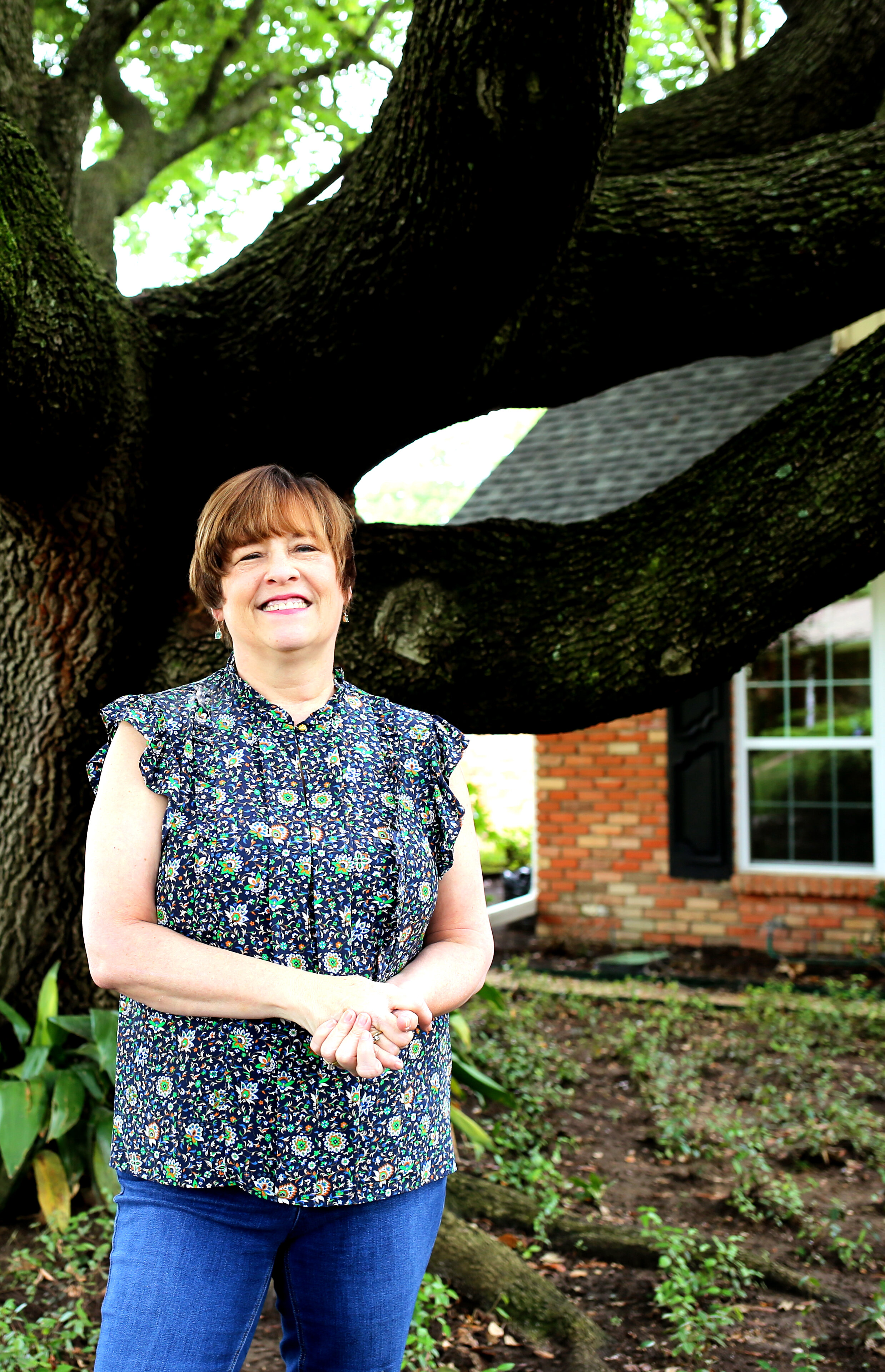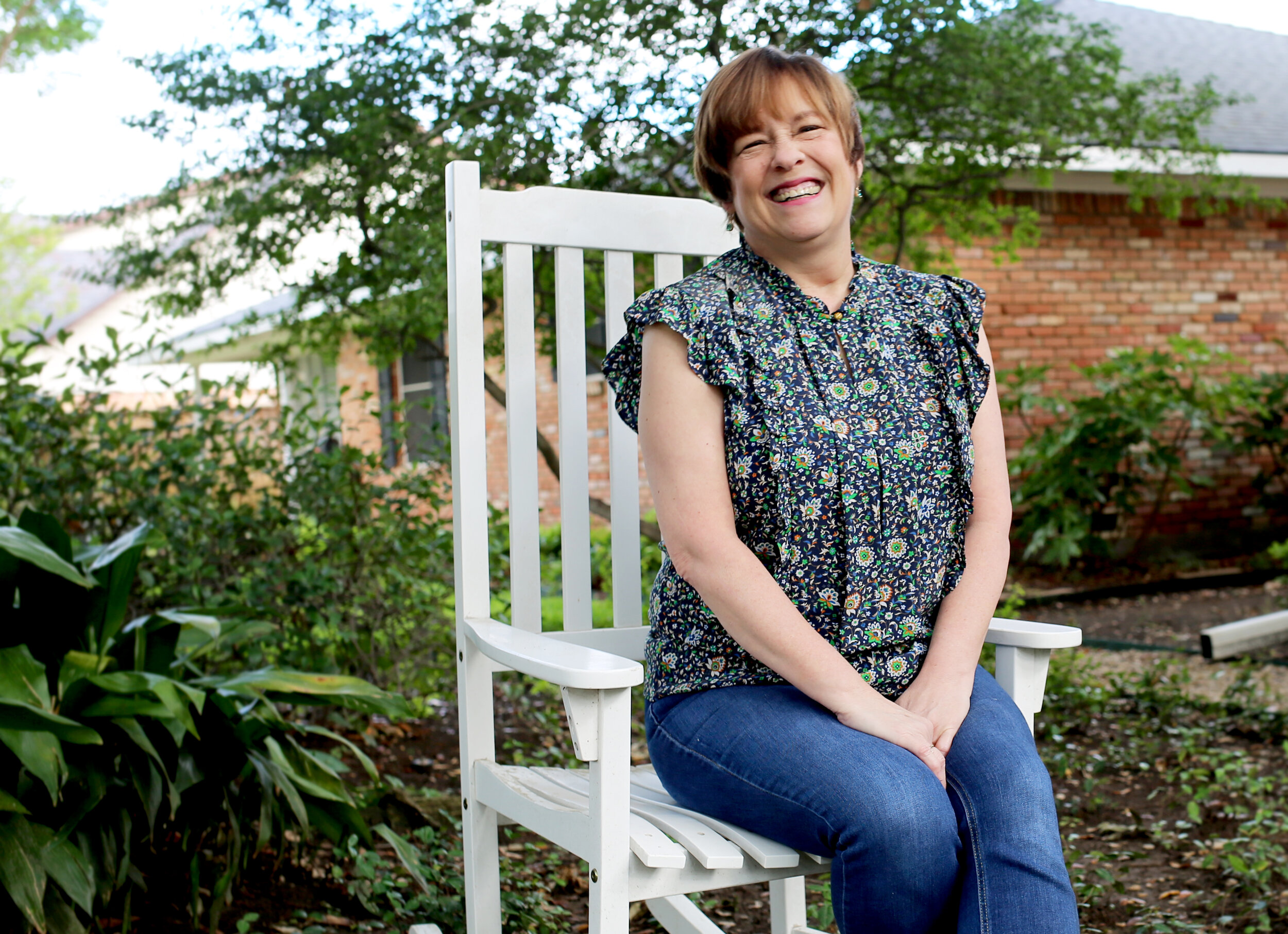Story by Misty Jackson-Miller. Photos by Jan Osborn.
When the City’s order to close non-essential businesses was issued on March 16, nonprofit Mental Health America (MHA) of Greater Dallas found itself quickly shifting to an online format to continue to serve Dallas residents, says Executive Director Bonnie Cook. The move was urgent. With the suddenness of the order, not to mention the increasing cases of COVID-19 throughout Dallas County, the social norms governing how one navigates the world had dramatically changed, almost as if overnight. By the end of March, the self-assessments on the MHA website saw an 86% increase in traffic compared to the month before. But within two weeks of the first order, MHA was prepared to meet Dallas residents where they were at—in their living rooms, their bedrooms, or even outside on an afternoon walk.

Bonnie Cook, at her home in North Dallas.
MHA of Greater Dallas has been a leading champion of mental health since 1947. They connect people to resources within the community, organize support groups, and advocate for policy changes to help support affordable, accessible mental health care. “MHA is the catalyst to identify and respond to mental health care needs in our community,” says Cook. “We give a voice to people who don’t always have a voice.”
Even now, MHA’s commitment to mental wellness in the community remains unchanged. Like the vast majority of people in this post-COVID world, “we’ve been thrown into this new, remote environment,” says Bonnie. “There is no handbook for dealing with this.” Prior to COVID, “mental health care has always been face-to-face communication and outreach.” But the team quickly adapted to the new demands and the online services.
Staff members began calling to check on everyone in the MHA network. “If we have a phone number for you, we are picking up the phone asking how you’re doing, how’s your mental health,” says Bonnie. As the team moved their five support groups into private, HIPAA-compliant video conferences, there were concerns that group attendance would significantly drop. However, says Bonnie, “attendance shot up.”
In addition to moving their support groups online, MHA of Greater Dallas has added a list of COVID-19 resources to the website in Spanish. Resources include everything from work-at-home toolkits and organizations that offer mental health services on a free or sliding scale basis, to organizations that help with job placements, childcare, and food assistance. And because younger children are now spending more time online, MHA has made a shortened version of their Scooter Skunk curriculum about cyber-bullying available for free on their website.
The team at MHA has also put together a Quarantine Video Series featuring topical discussions with staff and board members. In the “Pandemic of Panic,” for example, Dr. David Henderson discusses how fear can become a “self-fulfilling prophecy” and shares tips on how individuals can cope.
The stress and anxiety of “this new normal” is indeed widely felt. But for individuals who have been struggling with mental illness prior to the coronavirus outbreak, the symptoms of their illness would likely become more pronounced, especially when compounded by unemployment and food insecurity. “Historically,” says Bonnie, “a lot of people who do have a mental illness don’t have very good coping skills. Those thoughts of ‘I’m not good enough’ and social isolation make it worse.”
As lockdown restrictions begin to ease, the traumatic stress experienced by individuals, especially those essential workers on the frontlines, will likely be felt in the months to come. Bonnie says that “it has taken a pandemic for us to look at the mental health of first responders. We know that even before COVID, doctors were three times more likely to experience depression and PTSD, and first responders were five times more likely to experience depression and PTSD.” With the renewed attention to mental health during this crisis, Bonnie hopes that it will also bring “the mental health of these professionals to the forefront.”

There are so many unknowns about the weeks and months to come, which makes planning for the future especially challenging—especially if an individual is also dealing with unemployment. “To be flexible, you have to be in a particular mindset to be flexible,” says Bonnie. Through its collaborative approach to fostering mental wellness within our community, Mental Health America of Greater Dallas is helping individuals from all walks of life grow that particular mindset.
If you or someone you know is experiencing a mental health crisis or suicidal thoughts, please dial 1-800-273-8255 for the National Suicide Prevention Lifeline or text TALK at 741741. For help finding a mental health resource, call the Here for Texas Mental Health Navigation Line at 972-525-8181.